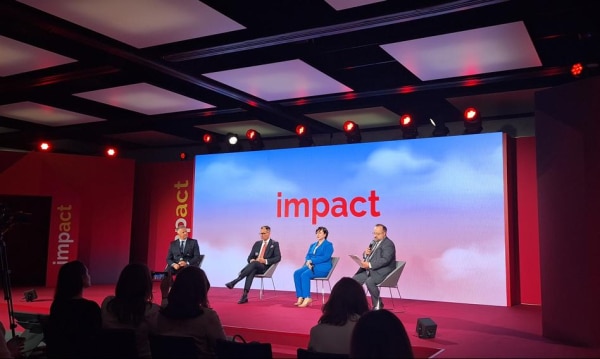The pharmacy market in Poland is treated as a background, strategic supplies last for 6 hours, and no one listens to warnings – says Marek Tomków, president of the Supreme Pharmaceutical Council. Experts thunder: if we do not change our approach, we will face a drug crisis on a scale we have not seen before.

– I would like someone to finally notice that we are (…) Everyone is used to the fact that there are medicines, that there are pharmacists, that there are pharmacies, and therefore everything is fine. But it is not. Yesterday I checked that in 2001 a regulation was created that stated what else can be done in pharmacies apart from selling medicines. Since then, we have had 13 ministers of health. None of them wrote this regulation . Pharmacists all over Poland have been fighting for the right to weigh a patient for several decades . – said Marek Tomków, president of the Supreme Pharmaceutical Council during the second day of the Poznań Impact complicated topics.
Thirteen health ministers later…
– In general, I think that two things should be given very close attention. First, the pharmacy market should be treated as a strategic market . Today, we already use the term drug security, but a few years ago it was absolutely exotic. The first time we talked about drug security, treated in terms of energy or military security, was before the war in Ukraine (…) Everyone treated it as a marketing ploy. Today, no one laughs at it (…) This is a strategic market, we cannot allow it to be sold out , we cannot allow money to enter it that is not controlled, and we do not know where it really came from – Tomków points out.
The President of the Supreme Pharmaceutical Council emphasized that the second important element is to create opportunities for pharmacists to get involved in healthcare services. Tomków said that pharmacists do not want to be paid “for nothing”. They expect to be able to support the system . As an example, the speaker indicated the circulatory system disease program – one of the largest screening programs – emphasizing that it could also be carried out by pharmacists. This would thus constitute a certain relief for other structures of the healthcare system and use the potential of highly qualified pharmacist staff.
“We are transparent to the system”
– 12 thousand pharmacies and 70 thousand specialists are being omitted . However, the distribution of potassium iodide in the event of a radiation hazard is being entrusted to firefighters instead of pharmacists or pharmacy technicians, which means that we are not really in this system (…) We hear the announcement of the President of the United States that there may be tariffs on medicines from tomorrow – and he points out that recently one of the largest factories producing medicines has moved to China.
– Sometimes, all it takes is a simple change in regulations and we will use this opportunity. Today, we are absolutely transparent to the system, so to speak – says the president of the Supreme Pharmaceutical Council and points out that a few years ago there was exactly the same debate, during which the industry presented several proposals. However, almost none of them have been considered to this day. Another issue concerns the lack of inclusion of pharmacies in crisis structures.
“Strategic supplies lasted for 6-7 hours”
– The question about the crisis is not whether it will happen, but when? Because we know it. A few years ago, during the pandemic, we had a big problem with antibiotics (…) For several days there were no appropriate drugs that could be administered, and our strategic supplies were enough for 6 to 7 hours – warns Tomków.
According to Maksymilian Świniarski, globalization has caused decisions regarding the availability of a given drug in Poland to be made far beyond the country’s borders . The expert emphasizes that they can potentially be costly for our society. “We produce only 10 active substances, and 20 products that we have in our portfolio are on the list of critical Polish drugs or 25 in Poland 20 drugs.”
At the same time, just a few days ago, a monthly list of medicinal products, foodstuffs for particular nutritional uses and medical devices at risk of lack of availability in the territory of the Republic of Poland was published. The list includes 276 preparations.
“Becoming independent from Asian markets would be advisable”
– The market is demanding and there are fewer and fewer products. The pandemic was the first period that showed that becoming independent from Asian markets would be advisable (…) We need incentives and support from the Ministry of Health. This would be really helpful. In addition, there are economic issues and appropriately prepared regulations – lists Karolina Demus, president of Sandoz Polska.
Karolina Demus, CEO of Sandoz Polska, points to the cooperation of the Austrian government in the field of drug production. “We have a plant in Austria that produces antibiotics. It is one of the last vertically integrated plants. This means that we are able to produce a drug from the active substance (API) to the finished product . Interestingly, and this is important from the point of view of inter-ministerial cooperation, the Austrian government has been very much involved in investing in this plant,” says Demus.